It’s the Limited Edition Rkatsiteli by Kakhetian Technology 2021, a wine produced by Ukraine’s best-known wine producer, Shabo.
Shabo Winery was founded 20 years ago by Vaja Iukuridze, a Georgian winemaker, and his family, in the village of Shabo, 70km from Odesa. This is a historic wine region, populated more than 200 years ago by Swiss colonists, who brought their winemaking traditions with them.
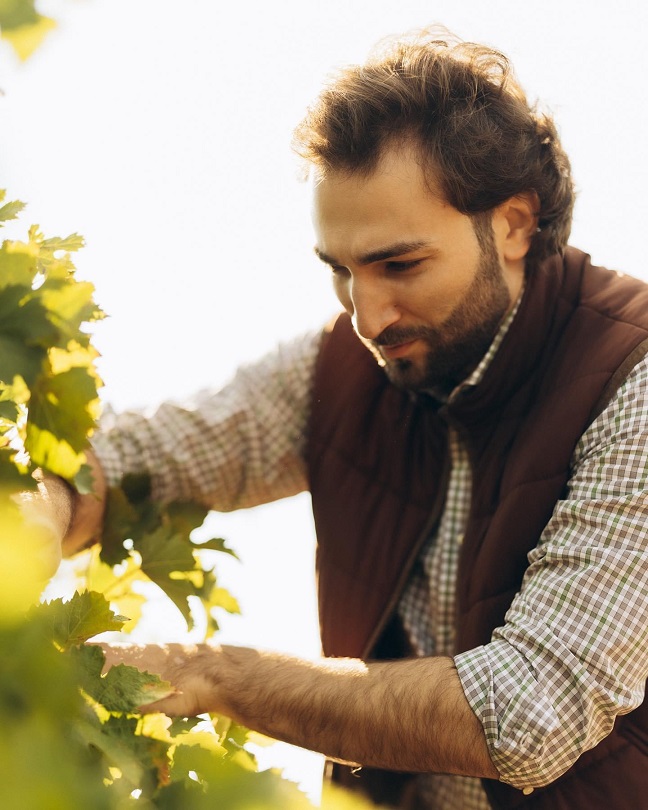
The son of Vaja, Giorgi Iukuridze (above) – now the co-owner and CEO – explains the background: “Our family is fifth generation Georgian winemakers, although only my father was the first one to pursue it professionally and managed to build a serious business out of it. However, we can say that winemaking is in our blood. This is part of our life and national culture. My grandmother taught me how to make wine in the famous Alazani Valley. And, since we were kids, we all have known what working in the vineyards is like.
“During the Soviet time, my father went to study and work in Ukraine. He was amazed by the huge potential of this land and the almost complete absence of winemaking culture there at that time. Thus was born a dream that came true, largely due to circumstances, as well as hard labour. In the late 1990s, our family planned to return to Georgia, but the civil war began there. We decided to stay, and Ukraine accepted us, gave us the opportunity to put down our roots here, to grow our vines. For us, Shabo Winery is not only an enormous piece of work, but also a sign of gratitude to Ukraine for this opportunity.”
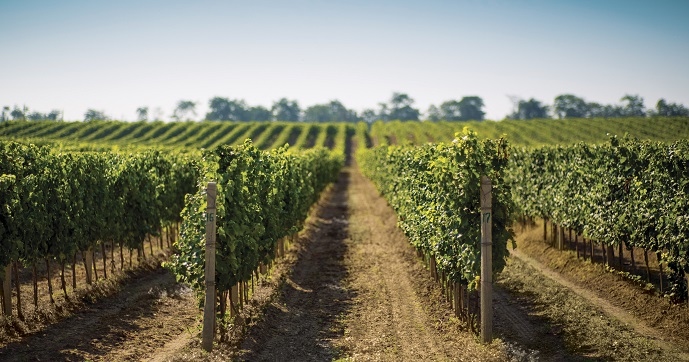
At present, Shabo owns 1,200ha of vineyards, growing classic European varieties as well as the famous Georgian grapes Saperavi and Rkatsiteli, and a Ukrainian autochthonous white variety, Telti-Kuruk. Shabo is the only winery in the world where pre-phylloxera, own-rootstock Telti-Kuruk vines are preserved. “The unique terroir of Shabo village is a real blessing for our vineyards,” Giorgi continues. “They are located between the Dniester estuary and the Black Sea, being nourished through the deeper layers of soil and blown through by the fresh sea winds. Combined with the skilful and comprehensive approach of our winegrowers, these features work wonders for our vines.
“We are doing deep loosening of the soil in the fall after harvesting, so that the vines could have some time to accumulate a sufficient amount of moisture and get the necessary nourishment. We certainly apply harvest control during the vegetation season. The Ukrainian land is really good to us. It is being loved and cherished every day. We will continue to do our best to preserve this amazing terroir that can be discovered and enjoyed in every bottle of our wine.”
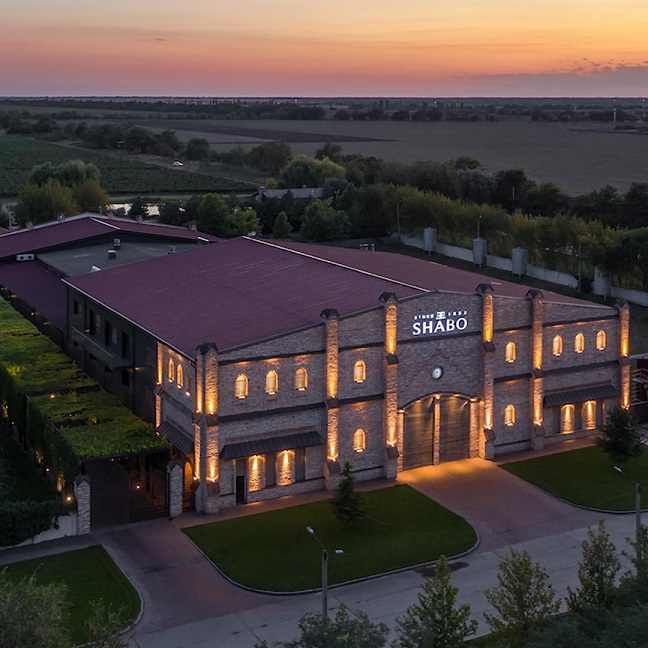
Shabo Winery was created from an old Soviet “wine factory” that hadn’t been functioning for years. Investments in relaunching and growing the business amounted to €110m. The winery’s ultra-modern technological complex includes the production of still wines, a house of sparkling wines, and a distillery. At their winery, the Iukuridze family also created an impressive centre of wine culture, boasting ancient wine cellars, a media library, a wine museum, beautiful tasting rooms and an art collection. To be honest, my first visit to Shabo nearly 10 years ago came as a shock: I didn’t expect to find a winery, or rather a winemaking and tourist complex, of this scale in a village near Odesa. Nowadays Shabo Winery not only continues to operate, but also welcomes tourists – despite the war.
Like millions of Ukrainians, the owners and employees of Shabo have been facing severe difficulties since the first day of the full-scale Russian invasion. “We have not stopped the production of our wines. We continue cultivating our vineyards, purchasing and planting new vines. We are trying to protect the company’s employees, we have not cut any jobs, we have not stopped paying wages. We are doing our best to keep our team safe and support them. Since the beginning of the war, we have been providing humanitarian aid to the residents of Shabo, engaging in various volunteer activities,” Giorgi comments.
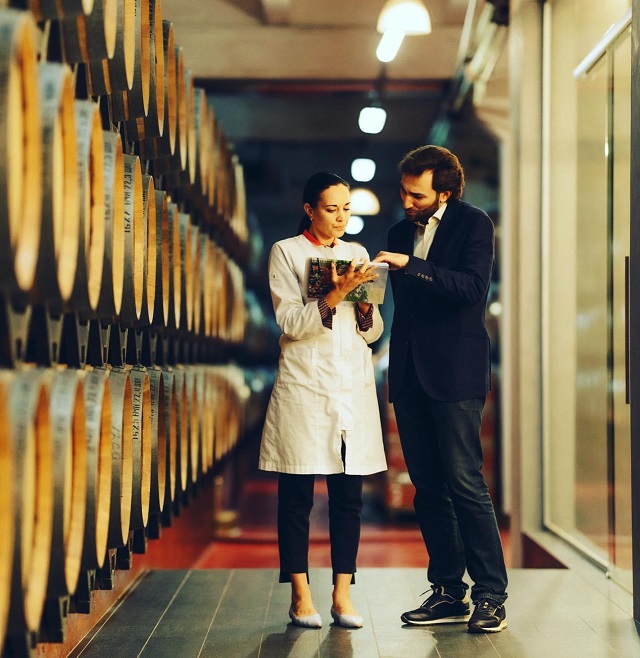
Despite the on-going occupation of some Ukrainian territories by Russia and the sharp drop in domestic consumption, Shabo is doing its best to keep its sales turnover at pre-war levels by increasing exports.
Giorgi says he always knew that sooner or later he would be involved in winemaking, although he managed to obtain a degree in politics and international relations. “What I am doing now can be called wine diplomacy,” he says. “We are actively developing our exports and promoting not only our wines, but Ukraine as a winemaking country, on the international arena.” Given the current situation, this is not so simple. The cost and duration of shipping have increased, for example. But, despite all the difficulties, the Shabo team managed to find solutions and expand their exports.
Shabo’s growth in export markets for its still and sparkling wines and brandy is quite impressive: Their wines are being exported to more than 25 countries on five continents. Recent expansions include: Denmark, Sweden, Finland, Norway, Poland, USA, United Kingdom, and Singapore.
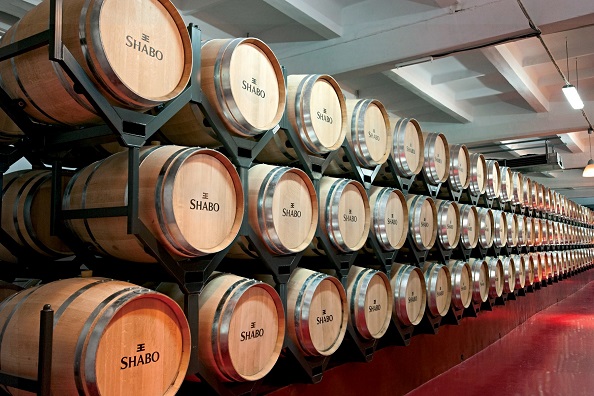
“By 2024, we have expanded significantly in the Scandinavian market, now selling our wines in Finland, Norway, Sweden and Denmark. At present, we are finalising our negotiations with a new distributor in Japan, focusing on the premium segment wines. Also, we have recently signed a 10-year contract with a new distributor in the USA. It’s really important for us, that a certain percentage of each bottle’s cost sold by this distributor will be donated to the foundation supporting Ukrainian war veterans. It’s quite symbolic, as the founders of that US company are war veterans themselves,” Giorgi states.
Giorgi hopes the recognition from the IWC will prompt others to take note of his adopted country’s wine heritage and wine production. “Our biggest desire is that Ukraine takes the place it deserves on the world’s wine map,” he says. “To make it happen, our winemakers must join forces to represent it as a powerful unit.”
Shabo Limited Edition Rkatsiteli by Kakhetian Technology 2021

The Limited Edition collection is fermented and aged in qvevri – a tribute to the old Georgian winemaking traditions of which Giorgi is very proud. “Making wines using Kakhetian technology means a lot to us,” he says. “This technology is so ancient, it goes back 8,000 years. It is unique – this is why UNESCO has included it in the list of intangible cultural heritage.”
The Kakhetian technology involves fermentation and ageing of wine on skins in a qvevri buried in the ground. The qvevris are produced by just a few families in Georgia. These masters pass their skills from generation to generation. The type of clay also matters a lot: there are several terroirs in Georgia, providing the best clay for creating unique amphorae. Giorgi told me that the clay for their qvevris comes from Racha region: “They are made by the famous Kbilashvili family. In 2019, we ordered the first lot of 1,400L and 2,000L qvevris, altogether 15 pieces, and in 2023 we got 12 more, created and delivered to us. What started as an experimental collection has proved to be very popular among local and international consumers. Qvevris make the wines more round, elegant and deep, concentrating their aromas and taste.”
Quite symbolically, this collection was created by a Ukrainian oenologist, Olga Stoyanova, and a Georgian oenologist, Beka Gagunashvili.
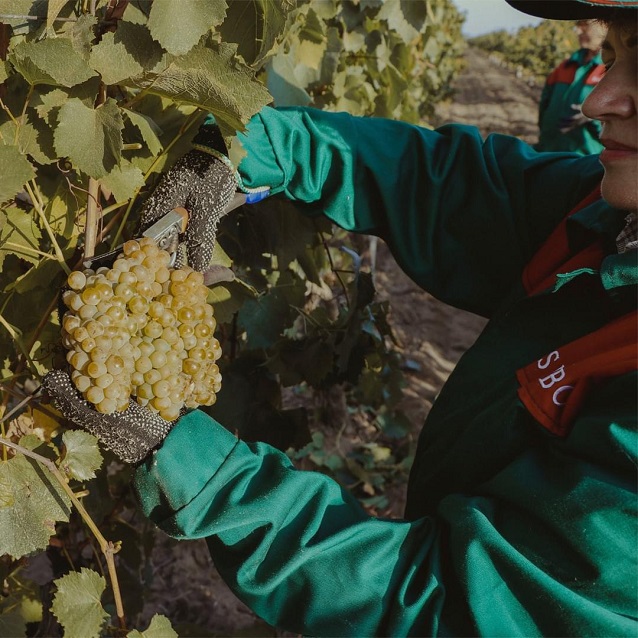
Limited Edition Rkatsiteli 2021 was made from Rkatsiteli, Georgia’s key white grape which is also quite widespread in Ukraine. The maceration lasted five months, giving the wine its rich amber colour. On the nose it demonstrates the aromas of apricots, peach and quince, accompanied by honey and white flowers, all typical for Rkatsiteli, with the notes of tobacco, bergamot and almonds. On the palate, it’s well-balanced and well-rounded with pronounced yet subtle tannins and a lengthy finish.
This week, the wines of Shabo and 14 other Ukrainian producers are on the Wines of Ukraine stand at the London Wine Fair (May 20-22, 2024).

 English
English French
French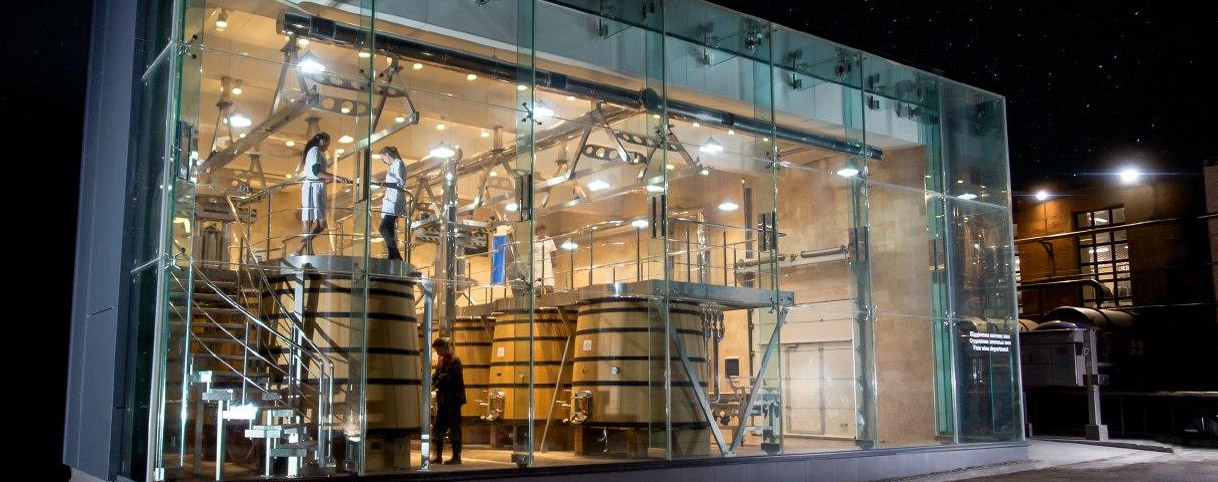







.png)


